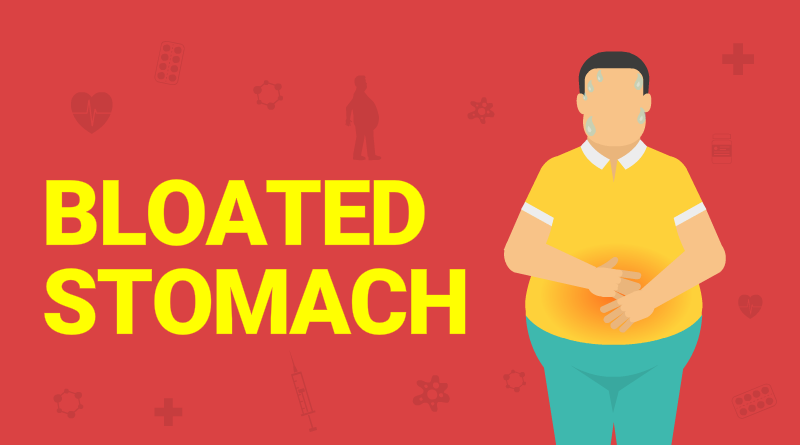Bloated Stomach: Signs & Symptoms, Causes, Diet To Get Rid Of It
What is a Bloated Stomach?
Stomach bloating happens when your gastrointestinal (GI) tract gets filled with excess gas production or disturbance in the movement of the muscles of the digestive tract. It is a very uncomfortable feeling of fullness in the belly.
Signs & Symptoms of Stomach Bloating
Some of the most common signs & symptoms of stomach bloating includes:
- A feeling of fullness in the abdominal area
- A sense of tightness around the stomach
- Sharp stomach pains and aches
- Swelling of the abdomen
- Increased flatulence
- Increased burping
Among the other, less frequent symptoms of bloating include cramps, belching, pain and diarrhea, shortness of breath and in severe cases lower abdominal pain.

Corporate Wellness App
CircleCare
Causes of bloating
In many cases, most of us think that their stomach is bloated because of excessive gas, but there can be many other reasons behind stomach bloating:
Bacterial Imbalance: Disruption in the healthy balance of gut bacterial flora can contribute to increased gas production, extreme bloating and symptoms of IBS. Some clinical diagnoses include small intestinal bacterial overgrowth (SIBO), parasitic infections, or yeast overgrowth.
Low Stomach Acid: Prevent proper breakdown of food, thus increasing digestive distress and disrupting nutrient absorption. This commonly causes bloating immediately following meals; however, if left unattended, could lead to nutrient deficiencies, full-blown gastrointestinal disorders, and malfunctions in various other biological mechanisms.
Food Sensitivities: Causes digestive discomfort, bloating, or other symptoms including acne and skin rashes without actually processing an allergy to the particular food. Gluten and lactose are two common food sensitivity culprits.
Hormones went haywire: Dysregulated hormone levels can cause bloating, reduced appetite control and fat accumulation in your lower abdomen, all of which can make your midsection appear larger. Influences include chronic exposure to stress, thyroid dysfunction, and excess fat tissue which disrupts hormonal signaling.
Damaged intestinal lining: Compromised integrity of the intestinal lining disrupts selective absorption of nutrients into the bloodstream, and results in inappropriate passage of larger molecules, such as food particles, from the intestines into the bloodstream, thus eliciting an inflammatory response. This can produce bloating, fatigue and digestive distress following a meal.
Diet to get rid of stomach bloating
Probiotics: “Good bacteria” foods like kimchi, sauerkraut, yogurt, kefir, and kombucha kill harmful bacteria that trigger digestive issues.
Raw dairy: Raw dairy products – as opposed to conventional dairy – like aged/raw cheese, kefir and yogurt limit adverse reactions, even in people who are lactose-intolerant.
Water-Rich Fruits & Vegetables: Leafy greens, cucumber, celery, fennel, artichoke, watermelon, blueberries, steamed veggies & cultured/fermented vegetables relieve stomach bloating naturally.
Herb, Spices & Teas: Herbs and spices like ginger, dandelion, aloe vera, fennel, parsley, oregano, rosemary, and ginger root, in addition to herbal teas, essential oils, bone broth, and green tea – naturally soothe digestion.
Food that causes stomach bloating
Sugar and Sweetened Snacks: Sugar easily ferments in the gut, contributes to candida and promotes inflammation.
Conventional Dairy: Flavoured yogurts and other dairies with sugar and artificial ingredients remove essential enzymes that protect the gut.
Refined Grains: Gluten, corn, oats and other grains are difficult to digest for many people.
Sulfur and fodmap carb: Veggies like broccoli, cabbage, cauliflower, onion, and garlic are difficult to digest for some.
Some other foods to avoid: Carbonated drinks, chewing gum, artificial sweeteners and sugar alcohols (aspartame, sorbitol, mannitol, xylitol), and certain fermentable fruits – like apples, avocado, peaches, and other stone fruits.








